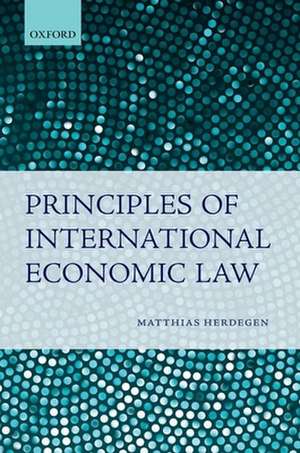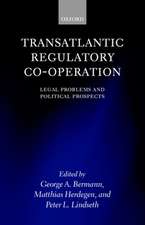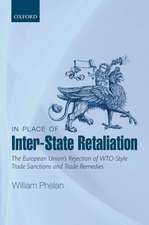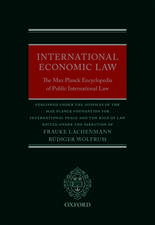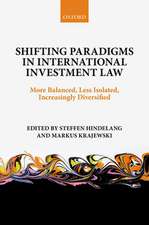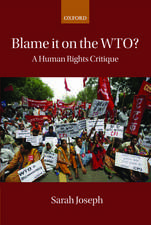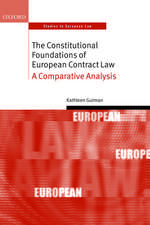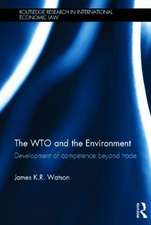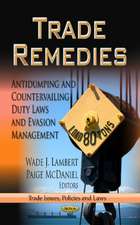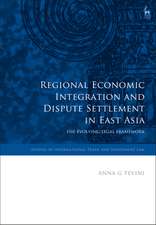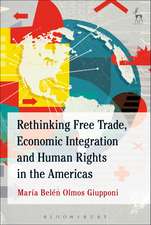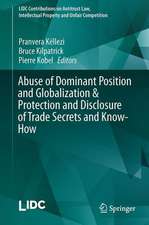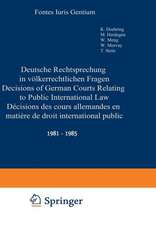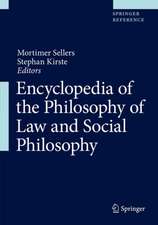Principles of International Economic Law
Autor Matthias Herdegenen Limba Engleză Hardback – 9 ian 2013
Topics covered range from codes of conduct for multinational enterprises, to the human rights implications of the exploitation of natural resources. The book demonstrates the economic foundations and economic implications of legal frameworks. It puts into profile the often complex relationship between, on the one hand, international standards on liberalization and economic rationality and, on the other, state sovereignty and national preferences. It describes the new forms of economic cooperation which have developed in recent decades, such as the growing number of transnational companies in the private sector, and forms of cooperation between states such as the G8 or G20. Providing a perfect introductory text to the field of international economic law, the book thoroughly analyses legal developments within their wider political, economic, or social context.
| Toate formatele și edițiile | Preț | Express |
|---|---|---|
| Paperback (1) | 458.93 lei 10-17 zile | |
| OUP OXFORD – 14 sep 2016 | 458.93 lei 10-17 zile | |
| Hardback (2) | 761.04 lei 41-47 zile | |
| OUP OXFORD – 7 mai 2024 | 905.31 lei 10-17 zile | |
| Oxford University Press – 9 ian 2013 | 761.04 lei 41-47 zile |
Preț: 761.04 lei
Preț vechi: 947.65 lei
-20% Nou
Puncte Express: 1142
Preț estimativ în valută:
145.69€ • 151.44$ • 120.80£
145.69€ • 151.44$ • 120.80£
Carte tipărită la comandă
Livrare economică 06-12 februarie 25
Preluare comenzi: 021 569.72.76
Specificații
ISBN-13: 9780199579860
ISBN-10: 0199579865
Pagini: 536
Dimensiuni: 155 x 234 x 38 mm
Greutate: 0.93 kg
Editura: Oxford University Press
Colecția OUP Oxford
Locul publicării:Oxford, United Kingdom
ISBN-10: 0199579865
Pagini: 536
Dimensiuni: 155 x 234 x 38 mm
Greutate: 0.93 kg
Editura: Oxford University Press
Colecția OUP Oxford
Locul publicării:Oxford, United Kingdom
Descriere
Principles of International Economic Law gives a comprehensive overview of the central topics in international economic law, with an emphasis on the interplay between the different economic and political interests on both the international and domestic levels. The book sets the classic topics of international economic law, WTO law, investment protection, commercial law, and monetary law in context with human rights, environmental protection, goodgovernance, and the needs of developing countries. It thus provides a concise picture of the current architecture of international economic law. Topics covered range from codes of conduct for multinational enterprises, to the human rights implications of the exploitation of natural resources. The book demonstrates the economic foundations and economic implications of legal frameworks. It puts into profile the often complex relationship between, on the one hand, international standards on liberalization and economic rationality and, on the other, state sovereignty and national preferences. It describes the new forms of economiccooperation which have developed in recent decades, such as the growing number of transnational companies in the private sector, and forms of cooperation between states such as the G8 or G20. Providing a perfect introductory text to the field of international economic law, the book thoroughly analyses legaldevelopments within their wider political, economic, or social context.
Recenzii
Although the book is an excellent addition to the literature on international economic law and is well suited for all students at both the graduate and undergraduate level ... the book would also fit neatly into the cabinet of law makers, policy advisers and other actors in economic international relations ... It would be a colossal loss if lecturers in international economic law do not make this book compulsory required reading.
Notă biografică
Since 1995, Professor Herdegen has held the chair for Public, European, and International Law at the Rheinische Friedrich-Wilhelms Universität Bonn (University of Bonn) and is also Director of the Institute for Public International Law and Institute for Public Law. From 1999 until 2004 he was vice-rector of the University of Bonn. He studied in Heidelberg and Cambridge (Clare College).
